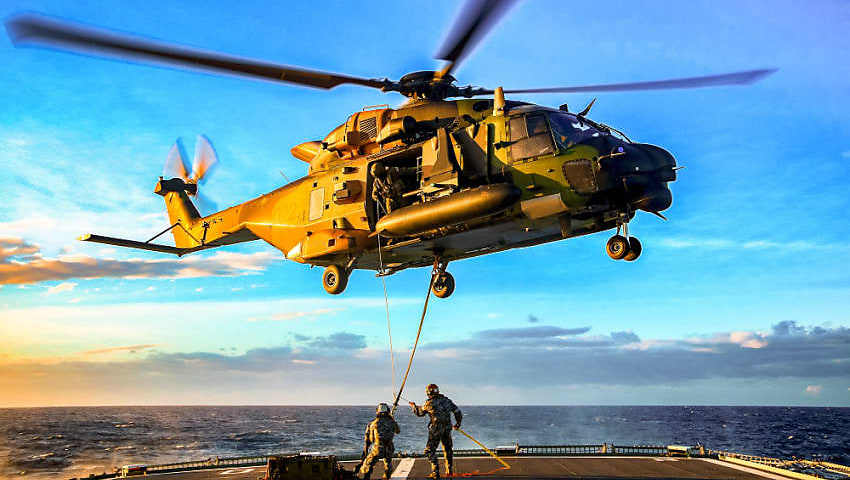The Department of Defence’s Projects of Concern (PoC) list, colloquially known as ‘the shame list’, is being dominated by AIR projects, with one major project being listed since 2011.
To continue reading the rest of this article, please log in.
Create free account to get unlimited news articles and more!
Established in 2008, the PoC list was implemented to focus the attention of the highest levels of government, Defence and industry on remediating problem projects, but several projects still remain atop the concern since the last PoC summit in December 2015.
The current list includes:
- CN10: Collins Class Submarine Sustainment
- AIR 9000 Phase 2,4 & 6: MRH90 Multi-Role Helicopters
- SEA 4000 Phase 3: Air Warfare Destroyer
- JP 2008 Phase 3F: Australian Defence Satellite Communication Capability Terrestrial Enhancement
- AIR 5431 Phase 1: Deployable Defence Air Traffic Management and Control System
- AIR 5431 Phase 3: Civil Military Air Traffic Management System
Since the last PoC summit, two projects – Mulwala Redevelopment Project (JP 2086 Phase 1) and Direct Fire Support Weapons (LAND 40 Phase 2) – have come off the list, but have since been replaced by projects AIR 5431 Phase 1 and Phase 3.
Defence's worst offender is the MRH90 Multi-Role Helicopters project, which has been on the list since November 2011. Defence is anticipating that the project will be delivered in 2019, five years later than originally planned.
The AIR 5431 projects' move to the concern list leaves AIR projects making up half the list, a damning sign for the the department's aviation projects, with Project AIR 87 Phase 2, although not on the list, also facing ongoing scrutiny. The Tiger fleet was recently grounded after the manufacturer declared an unsafe condition for all Tiger versions across the globe.
On the maritime side of defence projects, Project SEA 4000 Phase 3 (CN10) is firming as likely to come off the shame list soon, with shipbuilder ASC recently announcing it secured a further five-year contract for the sustainment of the Collins Class submarine fleet.
The awarding of the next performance period of the in service support contract (ISSC) came after the Submarine Enterprise achieved international benchmark submarine maintenance performance this year. The contract was agreed upon on 1 July.
At the opening of an innovation major upgrade to ASC's Western Australia submarine maintenance facility, Minister for Defence Industry Christopher Pyne strongly hinted the sustainment project looks likely to come off Defence's projects of concern list, a major achievement for the project that was once plagued with issues.
"Now we’ve reached international benchmarks; submarine sustainment is a sovereign industrial capability that we are going to keep into the future for decades," said Minister Pyne.
"Not so long ago the sustainment and maintenance of the Collins Class was a ‘project of concern’; it’s now an ‘exemplar project’.
"That has taken an incredible amount of work and commitment from the management and workforce of the ASC, to get to the point where John Coles [conductor of the 2012 review of the project] can tick-off on this project and say that we are surpassing international benchmarks."

 Login
Login







